SUMMARY
This is AI generated summarization, which may have errors. For context, always refer to the full article.
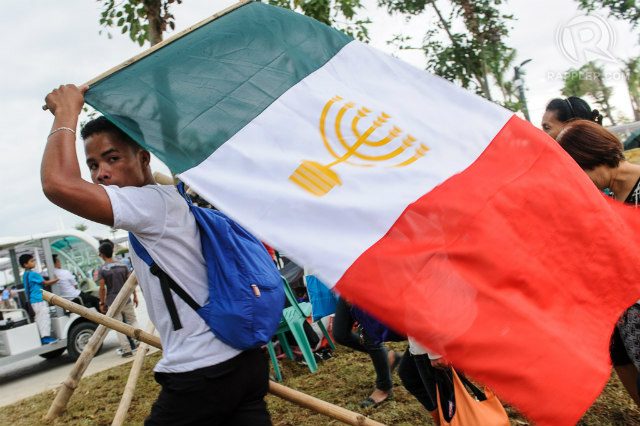
MANILA, Philippines – Wherever the campaign trail has brought them for the past few months, all of the Philippines’ 5 presidential candidates found themselves in one place less than a month before the May 9 polls.
From April 19 to 27, the presidential bets, in this order – former Interior Secretary Manuel Roxas II, Vice President Jejomar Binay, Davao City Mayor Rodrigo Duterte, Senator Grace Poe, and Senator Miriam Defensor Santiago – took turns visiting the Iglesia ni Cristo (INC) Central Office in Quezon City.
There, they all paid homage to INC Executive Minister Eduardo V. Manalo, the man with the final say over the votes of 1.37 million Filipinos.
The INC is known for its practice of bloc voting, where members elect only the candidates whom their religious leaders endorse. The winning candidates, in turn, reportedly give INC members special treatment once in office, if not grant them special favors. (READ: INC lobbies for key gov’t positions)
In this tight race to succeed President Benigno Aquino III, candidates cross their fingers for the solid vote of more than a million INC members.
Aquino himself was endorsed by the INC. His two immediate predecessors, Gloria Macapagal Arroyo and Joseph Estrada, also won the INC’s blessing. All of them gave the influential church some concessions.
Recent scandals involving the church, however, have cast doubt on the practice of bloc voting. Will INC members still obey their ministers on election day? And will the INC vote still matter in a race whose winner may have but a slight edge?
‘Willing to break from tradition’
A group of church members, called the Iglesia ni Cristo Thinking Voters, has said it is ready to “break from tradition” in the coming elections.
In an open letter on December 11, 2015, addressed to Philippine presidential candidates, the group Iglesia ni Cristo Thinking Voters said: “As you all know, INC is known for voting as a bloc during elections. This time, though, we are willing to break from tradition and vote for the candidate whom we feel will stand for what is right.”
The group refused to reveal its members’ identities, but said they represent “majority of church members who are rebelling inside because we could no longer close our eyes to what is happening in our church.”
They explained that the INC has become “a powerful and shameless bully which has no respect for the law or the government whose arm it knows it can twist to get what it wants.”
The group attributed this to the bloc voting system.
On the one hand, INC members believe bloc voting is rooted in their doctrine of unity. A least two biblical passages have been cited as basis for bloc voting:
- “How good and pleasant it is when God’s people live together in unity” (Psalm 133: 1)
- “Now I plead with you, brethren, by the name of our Lord Jesus Christ, that you all speak the same thing, and that there be no divisions among you, but that you be perfectly joined together in the same mind and in the same judgment” (1 Corinthians 1: 10)
On the other hand, the Iglesia ni Cristo Thinking Voters said, bloc voting has been abused for years.
“Needless to say, previous presidents and administrations have created a monster. Over the years, it has been allowed to grow in size and influence, and as proven by recent events, it now wields more power than the State. At the root of all evil is the precious bloc votes,” the group said.
They added in their letter, “Expect us to speak loudly and clearly come election time.”
2016 elections a first
Published 5 months after scandals erupted in the INC, this letter is one of the signs that the 2016 elections is a first for the century-old church. It is a first because of the unprecedented controversies surrounding it today.
In July 2015, days before its 101st anniversary, scandals involving alleged corruption as well as a family feud began to rock the INC. (READ: Revolt in the Iglesia ni Cristo)
No less than Angel Manalo, brother of INC executive minister Eduardo Manalo, faced the media to slam “many acts of corruption in the church.” Later, informed sources told Rappler that INC leaders have been using planes worth billions of pesos, among others.
This prompted members to question the lifestyles of their leaders, followed by many signs of division.
For example, the INC’s anti-government rally in September 2015 drew a smaller crowd compared to other church events in the past. The rally attracted up to 20,000 protestors, when earlier events had as many as 700,000 church members.
This is why it’s clear: For expelled INC member Lowell Menorca II, recent scandals will affect the INC’s practice of bloc voting this year.
In an exclusive interview with Rappler’s Chay Hofileña, Menorca, who first fled to Vietnam due to a reported death threat on his young daughter, said many INC members “are protesting in different ways” because of the church-related controversies. (READ: Ex-INC member Menorca: No hope for justice in PH)
“Kaya isang paraan din nila ng pagpo-protest is huwag nilang susuportahan ‘yung i-eendorso ngayon ng pamamahala sa darating na halalan. Nakikita kasi ‘yan ngayon na pinaka-ugat ng korupsyon sa INC,” Menorca said.
(One of their ways of protesting is not to support the ones endorsed by the leadership in the coming elections. This is because it’s seen to be the root of corruption in the INC.)
Votes in exchange for donations?
And corruption due to bloc voting comes in many forms, Menorca said.
For instance, if there’s a court case involving INC members, church leaders can make special arrangements with the politicians they endorsed. The cases could drag or be dismissed. “Ito na ‘yung payback time,” Menorca said. (This becomes payback time.)
He said the “special consideration” for the INC blurs the so-called separation of church and state enshrined in the Philippine Constitution.
Many INC members, he claimed, won’t support bloc voting because they don’t want corruption to taint their church.
“‘Yung boto, bloc voting ng INC, unfortunately, it is no longer existent. Akala lang nila – pero ‘yung mga kapatid ngayon, hindi na nila susuportahan ito,” Menorca said. (The bloc voting of the INC, unfortunately, it is no longer existent. They just think it is – but our brethren nowadays no longer support it.)
Menorca also cited “very serious allegations” that politicians “donate” to the INC to gain, or in effect buy, the church’s support for the elections.
A letter in May 2010, for instance, showed a mayor in the province of Bulacan introducing himself to current INC executive minister Eduardo Manalo. In this letter, the mayor said, he had donated at least P210,000 ($4,554) to the INC through one of its members in exchange for an endorsement.
Menorca said stories of politicians donating money in exchange for the INC’s support have become “an open secret.”
The former INC member said it wasn’t always this way.
INC vote ‘very solid’ before
Menorca, whose father served under the late INC executive minister Eraño “Erdie” Manalo, said the INC vote was “very solid” under the previous leadership.
Back then, he said, donations in exchange for votes had been mostly unheard of.
“During the time of Ka Erdie, ‘pagka nagkakaroon ng mga ganyang issue, agad na iniimbestigahan. Kung sino man ang napatunayan na nasangkot o may kinalaman sa mga ganyang mga bagay, pinatitiwalag at pinakakasuhan,” Menorca said.
(During the time of Brother Erdie, whenever there was such an issue, they immediately investigated it. Whoever is proven involved in these things is excommunicated and charged.)
These days, he said, instead of acting on such reports, the INC runs after the whistleblowers instead.
“Kaya medyo nawala ‘yung checks and balances sa loob ng church administration,” he said. (That’s why we lost the checks and balances within the church administration.)
Rappler sought an interview with INC spokesman Edwil Zabala about bloc voting, but he declined to be interviewed.
Zabala said on April 19, “We must respectfully decline because we do not want to be misconstrued as meddling in politics.”
“Also, the May 9 elections are still weeks away and the Iglesia ni Cristo, being a Church, is focused on ecclesiastical activities. As was done in the past, our members will vote come election day, after which we will continue with our various Church activities,” he said.
Sought again for comment on Menorca’s statements, among other things, Zabala replied on April 20: “The Church stands by its belief that in the end, the truth will prevail, justice will be served, and all of our critics’ actuations will eventually be exposed for what they truly are: a calculated attempt to gain the sympathy of the media and the public at the expense of the INC and its members.”
The INC is set to release its list of candidates close to election day. In February this year, according to The Standard Poll done by Laylo Research Strategies, Senator Grace Poe was the INC members’ most preferred presidential candidate.
‘Obey without questioning’
Menorca’s claims find basis among a number of INC members.
Martha (not her real name) said bloc voting was the practice that baffled her the most when she, a former Catholic, joined the INC along with her family. For one, she asked, how do they decide whom to endorse?
Despite her doubts, Martha said she practiced bloc voting in 2010 and 2013.
One of her turning points, however, was in 2013, when she was forced to vote for Nancy Binay, daughter of the Vice President, as senator. Binay, who won, was reportedly one of the senatorial candidates endorsed by the INC in 2013.
Nancy Binay had been criticized for her lack of experience when she vied for the Senate.
“Naiiyak ako na binoto ko si Nancy Binay,” she said. (I wanted to cry that I voted for Nancy Binay.)
Later, she said, issues surrounding the INC also affected her.
Martha said: “Kaya this coming elections, I don’t feel na sumunod sa kanila kasi parang ‘di na ‘ko naniniwala sa mga sinasabi nila.” (This coming elections, I don’t feel like following them because I don’t believe the things they say.)
Like Martha, Cecilia (not her real name) said she will break the INC’s bloc voting policy this year, as she did in the previous elections.
“I believe it is my right to choose my own candidate,” she said.
Cecilia also believes that “the bloc vote is being used by some powerful INC members for their own interests.”
On the other hand, Rose (not her real name) said she still intends to follow bloc voting despite issues hounding the INC.
“Binabase ko ‘yung pagsunod ko doon sa doktrina ng INC na huwag magkampi-kampi,” she said. (I base my obedience on the doctrine of the INC on not taking sides against each other.)
She added, “Kaya may kontrobersya dahil nahahayag na ang mga maling ginagawa. Pero sa akin, hindi ‘yun dahilan para hindi na ako sumunod sa Diyos.” (There’s a controversy because the evil being done is being revealed. But for me, that’s not reason enough not to follow God.)
Like Rose, Mario (not his real name) pledges to vote for the candidates anointed by their church leaders.
For Mario, it boils down to one thing: the doctrine of unity.
The INC, for its part, is not taking any chances.
On April 17, an INC insider said the church’s leadership sent a strong message – perhaps also a warning – throughout its 5,000 churches and congregations in the Philippines.
In the face of recent controversies, the message, in effect, to followers was: “Whoever the executive minister will choose to vote, we will obey. Obey without questioning. Without arguing. Without commenting.” – Rappler.com
$1 = P46.11
Add a comment
How does this make you feel?
![[WATCH] #TheLeaderIWant: Filipino voters sound off on community issues a year before 2025 elections](https://www.rappler.com/tachyon/2024/05/filipino-voters-sound-off-on-community-issues-1.jpg?resize=257%2C257&crop=276px%2C0px%2C720px%2C720px)

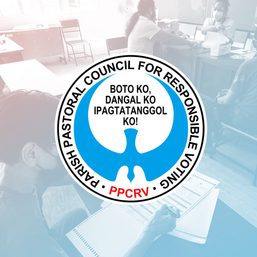
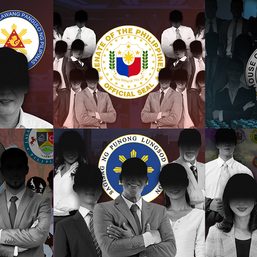

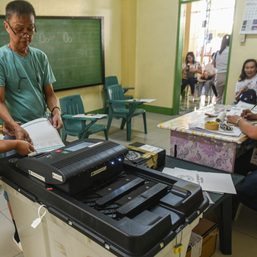

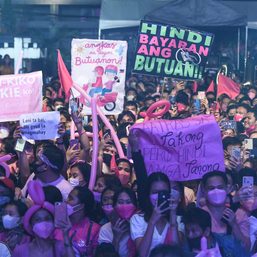
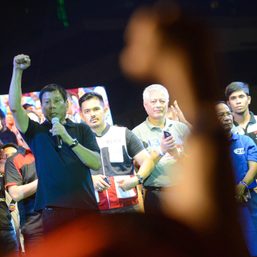
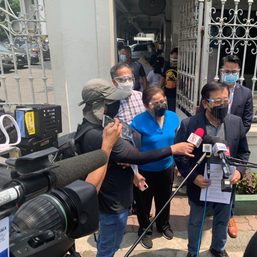
![[Free to Disagree] Boomers, let go please](https://www.rappler.com/tachyon/2024/07/tl-boomers-let-go.jpg?resize=257%2C257&crop=286px%2C0px%2C720px%2C720px)


![[ANALYSIS] The political divorce rocking the Philippines](https://www.rappler.com/tachyon/2024/07/TL-duterte-marcos-china-US-feud-july-4-2024.png?resize=257%2C257&crop=303px%2C0px%2C720px%2C720px)

There are no comments yet. Add your comment to start the conversation.